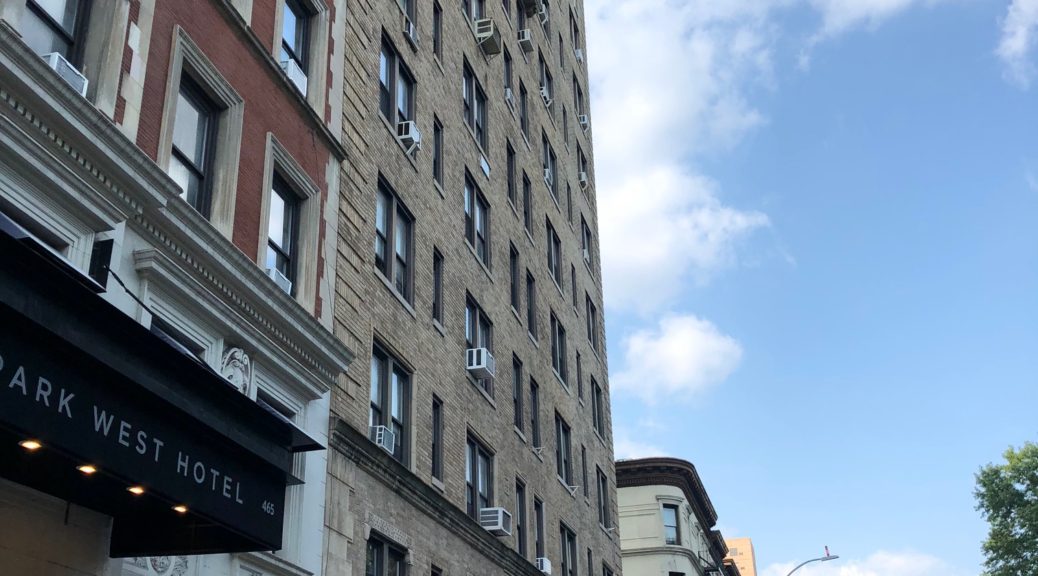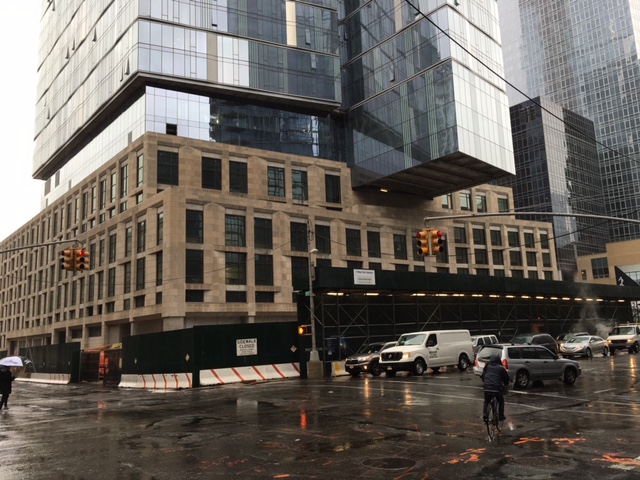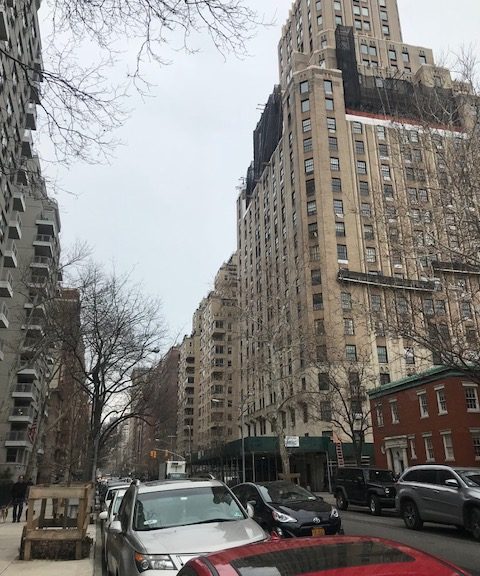
Tag Archives: condos
How is a Manhattan co-op different from a condo part 3?
In this continuing series we will take a look at a couple more differences between co-ops and condos.
1- Co-ops tend to be located in prewar buildings while condos tend to be newer, shinier and more full of amenities. So if you love prewar lobbies, crown moldings and other details of prewar buildings, you probably will be looking at more co-ops. Almost all new offerings in the last 10 years plus are condos so condos tend to satisfy the wants of Manhattan buyers who are looking for newer buildings with amenities like swimming pools, roof decks, bowling or golf simulators. Some co-ops will have nice amenities as well but very few co-ops have been built in the last 20 years or so.
2- If you are a foreign national or US based investor, condos will most likely be your choice. Co-ops tend to examine a plethora of documents as previously mentioned including US credit. Since a co-op can turn down someone without providing a reason, if you are foreign national purchasing as a primary residence or a pied-a-terre, your safer bet will be a condo. Also, if you are purchasing for investment, almost all co-ops will require you live there first then there will be restrictions for how long you can rent.
The Author- ![]() Brian Silvestry , a licensed real estate broker, has been selling residential and commercial real estate since 1999. He has sold in every Manhattan market from Battery Park City to Washington Heights.
Brian Silvestry , a licensed real estate broker, has been selling residential and commercial real estate since 1999. He has sold in every Manhattan market from Battery Park City to Washington Heights.
Manhattan co-ops versus condos part 2
There are many differences between Manhattan co-ops and condos and in this series we take a look at a couple at a time.
1- Condos typically let you rent your apartment out without limit. So if you experience a job change and do not want to sell, you can rent out the apartment without an issue. In a co-op typically, you can rent out 2 of 5 years and then need to move back or sell.
2-Co-ops normally have higher monthly carrying charges than condos but lower prices. For example a 2bd/2ba co-op on the upper west side of about 1100 sqft might cost you $1.5 million and have monthly charges of about $2900. A similar condo might run you $2.1 million but the monthly charges might only be $2000.
Price differences, and ability to rent out are just two differences of the many between co-ops and condos in Manhattan.
The Author- ![]() Brian Silvestry , a licensed real estate broker, has been selling residential and commercial real estate since 1999. He has sold in every Manhattan market from Battery Park City to Washington Heights.
Brian Silvestry , a licensed real estate broker, has been selling residential and commercial real estate since 1999. He has sold in every Manhattan market from Battery Park City to Washington Heights.
What are the main differences between a NYC co-op and condo part 1?
This is the first in a 3 part series of the differences between Manhattan co-ops and condos.
There are many differences between a Manhattan co-op and condominium and in this first installment we will explore 2 of them.
1- Co-ops can turn down the application of a prospective purchaser without any reason given and that’s it, the buyer can not complete the purchase. Any fees or costs incurred are not reimbursed and that’s it. A condo grants a waiver of the right of first refusal when they take an application from a prospective purchaser. The only time that they may exercise the right of first refusal is when an apartment is being sold far below market. Instead of letting the sale go forward, they can purchase the apartment.
2- Co-ops more closely scrutinize the financial wherewithal of prospective buyers than condos. So you need to have a down payment of 20-25% plus a debt to income ratio of no more than 28% plus stable job history, and excellent credit. A condo may run credit but they are satisfied with you obtaining a loan commitment or purchasing cash. They are not going to turn you down because you do not make enough money.
The Author- ![]() Brian Silvestry , a licensed real estate broker, has been selling residential and commercial real estate since 1999. He has sold in every Manhattan market from Battery Park City to Washington Heights.
Brian Silvestry , a licensed real estate broker, has been selling residential and commercial real estate since 1999. He has sold in every Manhattan market from Battery Park City to Washington Heights.
Current Manhattan residential market conditions
As days on the market increases for most residential real estate, the consensus is that the Manhattan residential market is in buyer’s market. New realities are setting in for sellers and not just in the luxury market but in all price ranges including starter homes. In 19 years of selling residential real estate, I have seen this cycle a few times already. The last time through, the market forces were accelerated by the financial crisis. This time around perhaps the winds behind the sails may be the tech bubble as well as the Tax Reforms and Jobs Act and rising interest rates.
But in any case, a buyer’s market tends to not last too long so while some buyers are waiting it out and deciding to rent instead, now maybe the time to make that purchase, knowing that finding the absolute perfect time to buy may be like trying to catch the bottom of the stock market. One thing is for sure is that with a little patience and good negotiation, a purchase now can lead to serious appreciation once the buyer’s market turns again into a seller’s market.
Also I think understanding that the Manhattan property values are not decreasing across all asset classes. Townhouses in Harlem continue to see steady sales and modest appreciation. Also, try finding a 6-12 family property for sale uptown with upside potential. There is very little for sale. In these markets both investors and end users are pouring in and there is a lack of inventory. Recently, I had a 8 family for sale at 313 W 138th street and there was a high level of interest and the property went to contract at over asking price within 1 month of listing.
The Author- ![]() Brian Silvestry , a licensed real estate broker, has been selling residential and commercial real estate since 1999. He has sold in every neighborhood from Battery Park City to Washington Heights.
Brian Silvestry , a licensed real estate broker, has been selling residential and commercial real estate since 1999. He has sold in every neighborhood from Battery Park City to Washington Heights.
Differences between co-ops and condos part 3
In this continuing series we will take a look at a couple more differences between co-ops and condos.
1- Co-ops tend to be located in prewar buildings while condos tend to be newer, shinier and more full of amenities. So if you love prewar lobbies, crown moldings and other details of prewar buildings, you probably will be looking at more co-ops. Almost all new offerings in the last 10 years plus are condos so condos tend to satisfy the wants of Manhattan buyers who are looking for newer buildings with amenities like swimming pools, roof decks, bowling or golf simulators. Some co-ops will have nice amenities as well but very few co-ops have been built in the last 20 years or so.
2- If you are a foreign national or US based investor, condos will most likely be your choice. Co-ops tend to examine a plethora of documents as previously mentioned including US credit. Since a co-op can turn down someone without providing a reason, if you are foreign national purchasing as a primary residence or a pied-a-terre, your safer bet will be a condo. Also, if you are purchasing for investment, almost all co-ops will require you live there first then there will be restrictions for how long you can rent.
The Author- ![]() Brian Silvestry , a licensed real estate broker, has been selling residential and commercial real estate since 1999. He has sold in every Manhattan market from Battery Park City to Washington Heights.
Brian Silvestry , a licensed real estate broker, has been selling residential and commercial real estate since 1999. He has sold in every Manhattan market from Battery Park City to Washington Heights.
Differences between co-ops and condos part 2
There are many differences between Manhattan co-ops and condos and in this series we take a look at a couple at a time.
1- Condos typically let you rent your apartment out without limit. So if you experience a job change and do not want to sell, you can rent out the apartment without an issue. In a co-op typically, you can rent out 2 of 5 years and then need to move back or sell.
2-Co-ops normally have higher monthly carrying charges than condos but lower prices. For example a 2bd/2ba co-op on the upper west side of about 1100 sqft might cost you $1.5 million and have monthly charges of about $2900. A similar condo might run you $2.1 million but the monthly charges might only be $2000.
Price differences, and ability to rent out are just two differences of the many between co-ops and condos in Manhattan.
The Author- ![]() Brian Silvestry , a licensed real estate broker, has been selling residential and commercial real estate since 1999. He has sold in every Manhattan market from Battery Park City to Washington Heights.
Brian Silvestry , a licensed real estate broker, has been selling residential and commercial real estate since 1999. He has sold in every Manhattan market from Battery Park City to Washington Heights.
Differences between a Manhattan co-op and condo Part 1
There are many differences between a Manhattan co-op and condominium and in this first installment we will explore 2 of them.
1- Co-ops can turn down the application of a prospective purchaser without any reason given and that’s it, the buyer can not complete the purchase. Any fees or costs incurred are not reimbursed and that’s it. A condo grants a waiver of the right of first refusal when they take an application from a prospective purchaser. The only time that they may exercise the right of first refusal is when an apartment is being sold far below market. Instead of letting the sale go forward, they can purchase the apartment.
2- Co-ops more closely scrutinize the financial wherewithal of prospective buyers than condos. So you need to have a down payment of 20-25% plus a debt to income ratio of no more than 28% plus stable job history, and excellent credit. A condo may run credit but they are satisfied with you obtaining a loan commitment or purchasing cash. They are not going to turn you down because you do not make enough money.
The Author- ![]() Brian Silvestry , a licensed real estate broker, has been selling residential and commercial real estate since 1999. He has sold in every Manhattan market from Battery Park City to Washington Heights.
Brian Silvestry , a licensed real estate broker, has been selling residential and commercial real estate since 1999. He has sold in every Manhattan market from Battery Park City to Washington Heights.
First time buyer in Manhattan?
Here are some basic steps in purchasing a Manhattan apartment for the first time.
1- Decide on a Manhattan neighborhood
2- Get a pre approval
3- Co-op or condo?
3- Find a buyer broker
Also I would add to choose your real estate attorney well. Usually your buyer broker can help you with that. A real estate attorney usually chages around $2500 or so but some that do excellent work can be found for as little as $1700 depending on the price range of the property.
Additionally, beyond getting the pre approval make sure that the bank will finance in the building that you choose. Some buildings have sponsors that still own more than 10% of the shares(co-ops) or the apartments(condos) or a higher than usual percentage of tenants. This can complicate financing and is an area very often overlooked by many real estate brokers. This as a buyer can cost you time and money and add stress. So vet the building with your lender to avoid all of that! What are your tips for a first time buyer?
New York City property owners brace for higher taxes in 2015
Due to the robust real estate market, values have increased in the last year and as a result, New York City is raising the property taxes on all types of property. The largest increase will be weathered by Coop and condo owners who are taxed at a different rate. Continue reading New York City property owners brace for higher taxes in 2015








